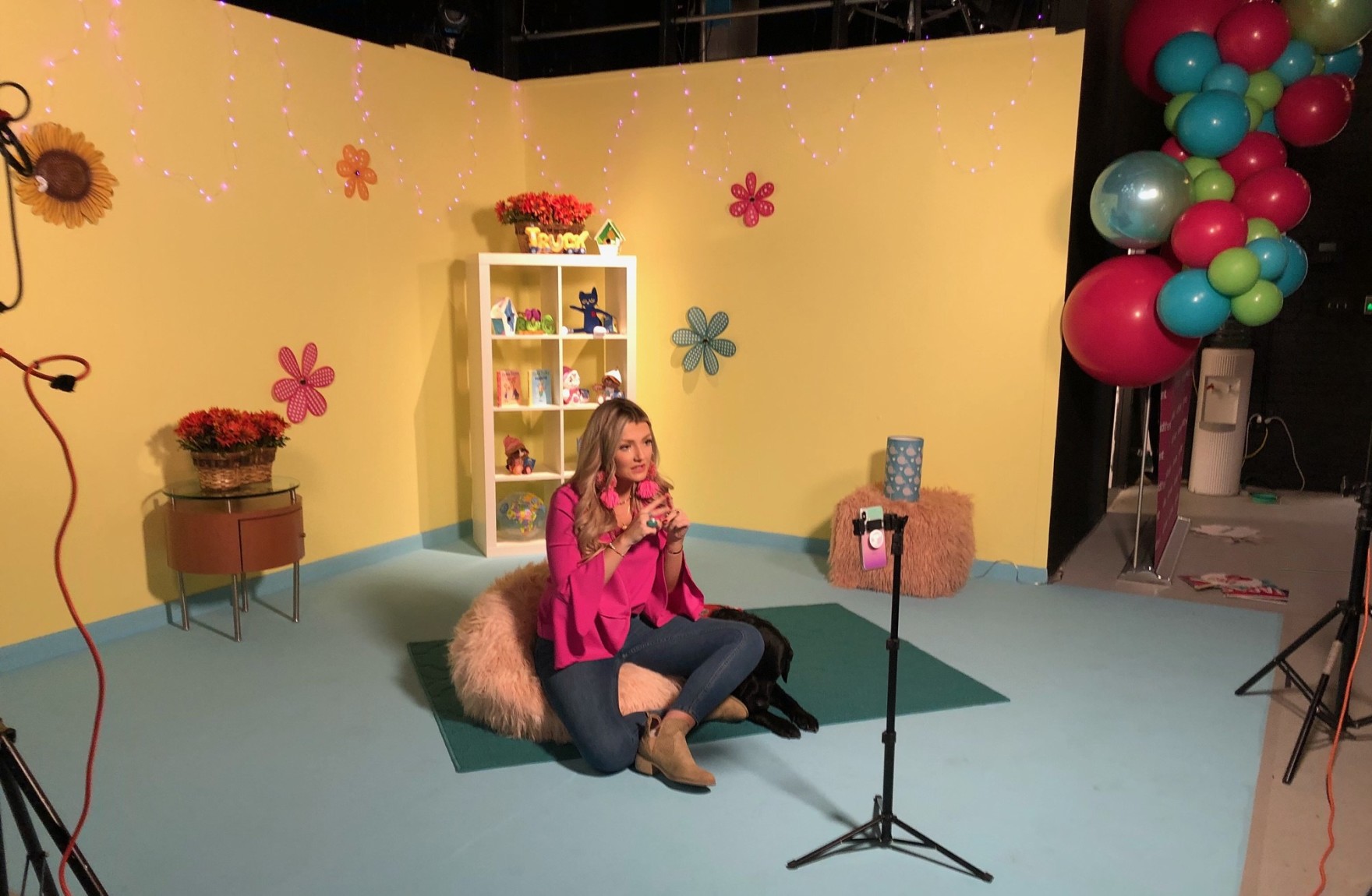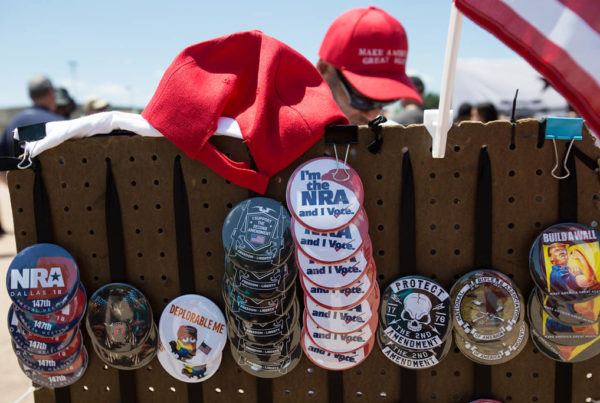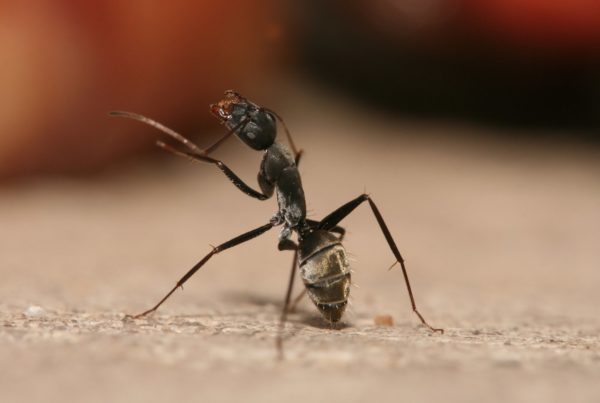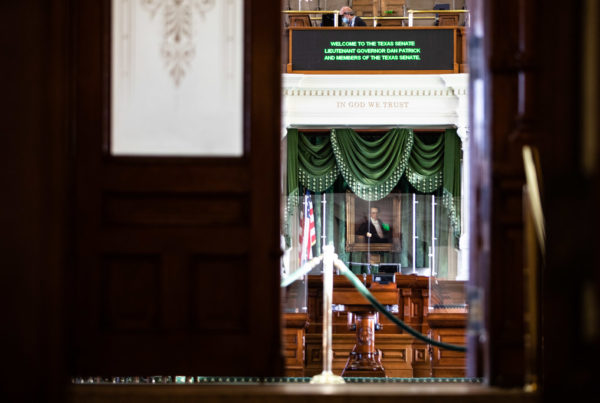From Texas Public Radio:
A Boerne woman and her dog are using television to teach kindness to area children, and she’s hoping that project may continue to grow.
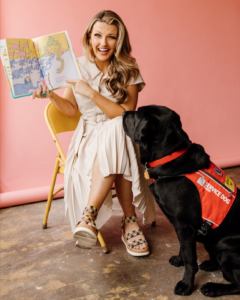
Emma Faye Rudkin
Emma Faye Rudkin lost her hearing during childhood. She learned sign language, how to read someone’s lips as they spoke and how to speak with her own voice. It wasn’t easy.
“Years of therapy and speech therapy. I do actually use sign language now as an adult,” she said.
Rudkin has turned her experience into a way to help others. She now runs Aid The Silent, a nonprofit that advocates for the hearing impaired. And she’s recently teamed up with KLRN, San Antonio’s PBS affiliate, to produce one-minute videos that offer important life lessons to young people. Most especially, kindness.
“I think it’s a very important message for kids. It’s really targeted for ages four to eight,” Rudkin said. “But I’ve had several people who are adults message me and say how much it meant to hear that perspective.”
Katrina Kehoe is vice president for marketing at San Antonio’s PBS affiliate KLRN.
“In these one-minute spots, we’re going to be teaching one word, whether it’s ‘please’ or ‘thank you’ or ‘love’ or ‘sharing.’ She teaches them what the word is,” Kehoe said. “She teaches how to sign the word, and then she uses it in a few sentences and talks about how it’s important to be that word, to be kind, to be loving.”
The videos are short but their messages are meant to have long-lasting significance. Rudkin says learning to sign even just a few words can produce empathy for those who can’t hear in those who can. And the videos don’t just star Rudkin. They feature her service dog, Hank. Kehoe thinks Hank helps Rudkin connect to a young audience.
“He is an amazing, an amazing dog who is very calm,” Kehoe said.
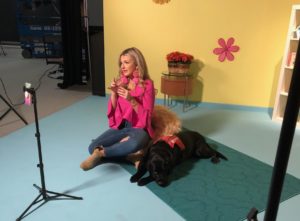
Katrina Kehoe
For now, the one-minute vignettes run in between programs just on KLRN, but they are also distributed to PBS stations statewide and PBS decision-makers nationwide. The objective is to eventually produce a full-length program. Kehoe said that Rudkin’s ability to come across on TV is exceptional.
“She has such a presence and she has such a beauty that’s about her. Not only is that external beauty, but it’s really just an internal personality that glows,” she said. “And that all comes across on TV very, very well.”
The video project is just one part of Rudkin’s work. In her non-profit advocacy work, Rudkin also makes presentations at conventions across the U.S.
“I speak a lot for my job. I’m actually a public speaker for education at different conferences,” Rudkin said.
A few years ago, Rudkin stepped on a light rail track without realizing a train was coming into the station. Someone pulled her back onto the platform and saved her life. Rudkin always took pride in her professional independence, but then swallowed that pride and applied to get a service dog to help her navigate daily life. That’s how she met Hank.
“I ended up with the love of my life. He is just an adorable black lab,” she said.
Hank accompanies Rudkin to conventions, wakes her up in the mornings and lets her know when there’s someone at the door. But Hank has also come to play a more important role in her work to help kids understand each other.
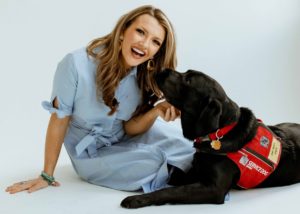
Emma Faye Rudkin and Hank
“A lot of my job is going to schools, and I teach against anti-bullying. I teach how to be kind,” Rudkin said. “If you met someone with a disability, how do you interact with them? How do you play with them?”
She said Hank loves children, and the connection the dog makes with the kids is an important step. Rudkin relies on her own experiences to help today’s young people. She feels her parents helped her learn how to face and overcome her fears, and they used her love for horses to instill that wisdom.
“My dad had a rule. He said, the only way you can keep the horse is if every time you get bucked off, you immediately get back on the horse, because something happens: The longer you let fear rule that situation, the more you become afraid of something you once loved,” she said.
And now she’s overcome her own fears, and she and Hank are trying to convey a message of kindness to a much broader audience. And that’s a message we could all stand to learn.


